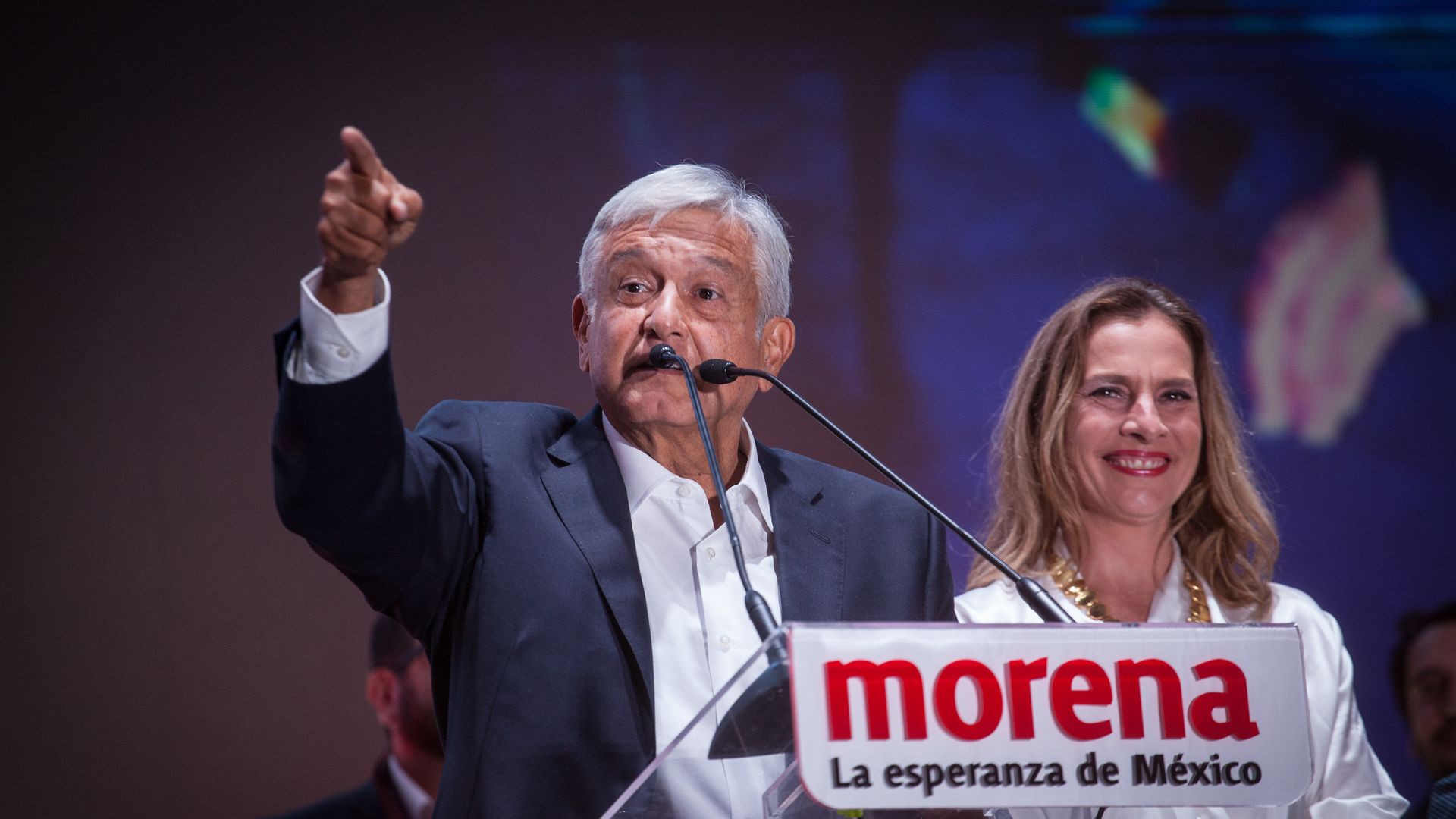Jul 2, 2018 - Energy & Climate
The energy stakes of AMLO's election in Mexico
Add Axios as your preferred source to
see more of our stories on Google.

Newly eleected Mexican President Andrés Manuel López Obrador. Photo: Pedro Mera/Getty Images
Add Axios as your preferred source to
see more of our stories on Google.

Newly eleected Mexican President Andrés Manuel López Obrador. Photo: Pedro Mera/Getty Images